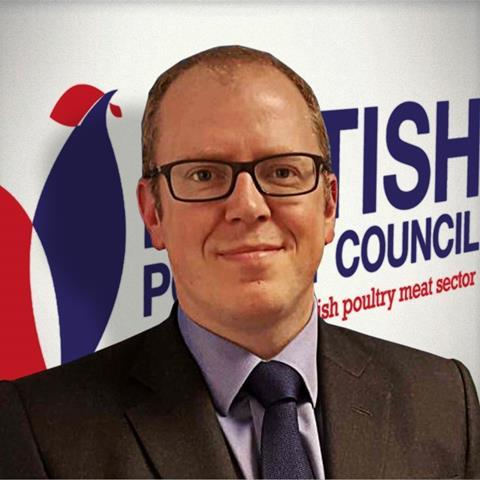Following the Government’s newly published set of ‘no-deal’ Brexit Technical Notices, the British Poultry Council and other meat organisations have offered their views.

Yesterday (23rd August), the Government released a publication of guidance on how to prepare for a no-deal Brexit.
The Government has stated that the technical notices offer information to allow businesses and citizens to understand what they would need to do in a no-deal scenario, so they can make informed plans and preparations.
What will change?
When it comes to the food industry, there are some things that the Government says will change in the event of a no-deal because the EU will treat the UK as a third country.
One major change is that UK businesses will only be able to export to the EU if they are certified by an organic control body recognised and approved by the EU to operate in the UK.
To do this, UK organic control bodies will need to apply to the European Commission for recognition.
Approval can take up to nine months so Government is exploring alternative approaches that should speed up this process.
The certification and traceability of organic food and feed products will continue to be required, however, a new UK-owned imports traceability system would replace the current EU TRACES NT system to ensure the traceability of organic food and feed.
For further information on the areas of the Technical Notices specific to the food industry, click here.
Responses
Responding to the contingency papers, British Poultry Council chief executive, Richard Griffiths, said: “British poultry meat farmers and producers are committed to doing everything they can to deliver a sustainable, secure and trusted supply of food, produced to world-class standards.
“We need the Government to devise a food strategy that enables EU nationals to work in our sector as and when needed; and that recognises the importance of food and the challenges it faces in being an essential yet perishable product.”
BPC believes that food is a special case, and it should be treated as a national security issue, and be protected as such.

Nick Allen, CEO of British Meat Processors Association, has also responded: “Throughout the Brexit debate the BMPA has consistently campaigned for frictionless borders with the EU.
“Frictionless Trade with the EU is vitally important for business efficiency and also to ensure that consumers can buy a wide selection of food at sustainable prices.”
Finally, Norman Bagley of the Association of Independent Meat Suppliers has commented on the notices: “Although a deal is the most likely outcome, as many EU members states are worried about the effect of a no deal on them. The UK Government must be in a position to minimize effects to normal trade.”

The International Meat Trade Association (IMTA) welcomes the technical notices that the Government has issued as providing much needed detail.
However, they confirm some challenges that our sector would face in the event of a no deal Brexit.
IMTA report even if the UK solves the issue of duties, the HMRC Trading with the EU notice confirms that customs formalities would apply to UK imports from the EU.
“We have small members who buy chicken breast from Poland. Currently moving chilled chicken from Warsaw to Manchester is no different than moving chicken from Belfast to Manchester” said Liz Murphy CEO for IMTA.
“These members have no experience of customs formalities and any delays at port would be a huge risk for such a perishable product.”
This story was originally published on a previous version of the Meat Management website and so there may be some missing images and formatting issues.















